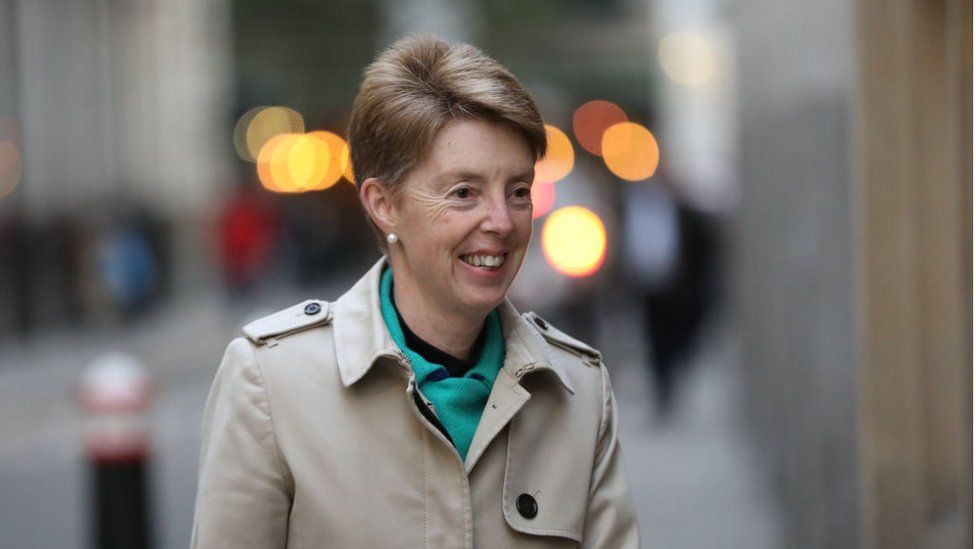Post Office: Husband of ex-boss Paula Vennells advised on Horizon 'bug'
- Published

The Post Office changed how it described problems with its Horizon IT system based on a suggestion by the husband of former boss, Paula Vennells.
The inquiry into the scandal has revealed that following advice from John Vennells, the Post Office stopped referring to "bugs", and instead called them "anomalies and exceptions".
Senior executives felt that this language was "less emotive".
But a lawyer for the inquiry branded the move as "absolutely Orwellian".
The long-running inquiry is looking into how hundreds of sub-postmasters were prosecuted for offences including theft and false accounting on the strength of the Post Office's faulty Horizon software system.
The prosecutions between between 1999 and 2015 resulted in what is widely regarded as one of the worst miscarriages of justice in British history.
On Tuesday, the Post Office's former general counsel Susan Crichton gave evidence.
Julian Blake, one of the lawyers for the inquiry, revealed an email from Ms Vennells from 2013 in which she asked her "engineer/computer literate" husband: "What is a non-emotive word for computer bugs, glitches, defects that happen as a matter of course?"
Mr Vennells, who did not work for the Post Office, suggested "exception or anomaly". The Post Office then started to refer to known defects in the system as "exceptions".
"Are we to understand here that words that were suggested by Paula Vennells' husband have now made their way into the terminology that's being used by the business?" asked Mr Blake.
"That's certainly what it looks like," Ms Crichton said.
"It's absolutely Orwellian, isn't it, the use of the word 'exception' now, instead of 'bug'?" he said. "Changing the language within the company."
Mr Blake was referring to the novel 1984 by George Orwell in which a repressive government uses words that are the opposite in meaning as propaganda.
He asked Ms Crichton if she would "take responsibility" for a briefing that referred to "exceptions", "given that you were one of the people drafting it?"
Ms Crichton said her input to the briefing would have been to do with a report that the Post Office was due to publish by investigators Second Sight.
"If I had solely drafted it and it had been my work then I would take responsibility," she said, but added: "I can't remember that."
Mr Blake then showed an email to the inquiry between Lesley Sewell, the Post Office's former IT chief and Martin Edwards, who is still a Post Office executive.
In it, Ms Sewell said: "We need to be careful in our [communications] not to indicate that we do not have anomalies or exceptions as that is not the case - it's the context which is important..."
Mr Blake asked whether the wording being used indicates an element of "smoke and mirrors about the whole thing".
Ms Crichton responded: "It certainly reads in that way, yes."
Related Topics
- Published10 April